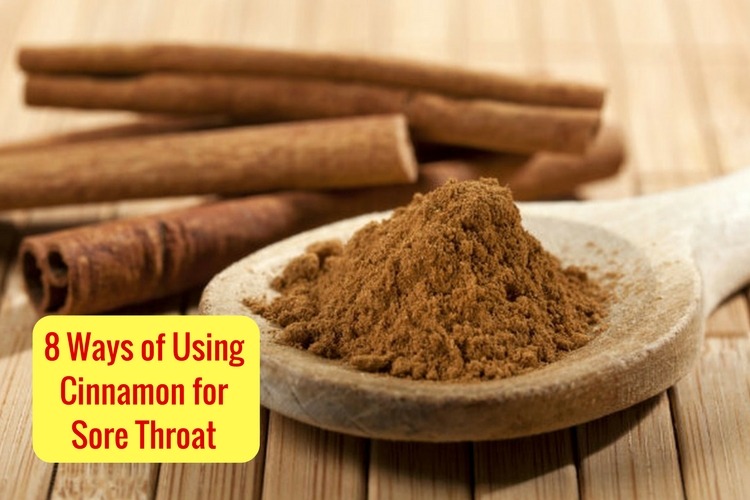Usually, a sore throat comes along with the flu or a cold, but not always. Whether it’s by itself or with other symptoms, we can all agree that a sore throat is no fun. It makes eating hard, swallowing is painful, sometimes it can affect your voice and no one likes to speak with a sore throat in general. It’s just plain miserable.
A sore throat can be caused by shouting too much or vocal strain caused by incorrect singing or speaking. It can also be caused by viruses or bacteria. If your throat is caused by bacteria, often a fever, swollen glands in your neck, and white patches on your tonsils may accompany it. Bacterial infections need to be treated by a doctor, usually with antibiotics (1).
Sore throats caused by viruses and vocal strain can be treated easily at home. Many find that the peroxide gargle for a sore throat is very effective and there is science that may back this up. But, is it safe to gargle with peroxide?
Can You Gargle Hydrogen Peroxide?
Gargling with something that is powerful enough to disinfect your home and bleach your hair and clothing seems a little scary (2). It’s definitely true that you should never drink it, but when used correctly it can possibly ease your sore throat. Here’s how:
- Hydrogen peroxide is antibacterial. It does take quite a while for it to have this effect, however, which is why it won’t necessarily help to get rid of bacteria in your throat immediately.
- Hydrogen peroxide has antiviral properties. It takes a little less time to kill viruses than bacteria, but still longer than you would gargle for.
- Hydrogen peroxide is sometimes used to speed up healing in wounds (3). This is different to a sore throat unless your throat is sore due to getting your tonsils removed. Your doctor may even tell you to use a hydrogen peroxide gargle after surgery. But confirm with your doctor before using it in the case that he or she hasn’t said to use it.
- These benefits are due to the fact that hydrogen peroxide has an oxidizing effect which helps to kill germs and give wounds an extra burst of oxygen to heal faster.
Having noted that it takes a while to work, gargling with it a few times a day increases exposure and this is perhaps why it works so well.
Peroxide Gargle for Sore Throat
You can use these remedies a few times a day. Most people say that the relief is almost immediate and that their sore throats are gone within 2-3 days. Only use 3% hydrogen peroxide or H2O2 or less. The higher percentages are too acidic.
1. Hydrogen Peroxide and Water
Hydrogen peroxide is acidic, so although you might find recommendations to use it by itself the safer option is to dilute it either in equal parts water and hydrogen peroxide or at 2 parts water and 1 part hydrogen peroxide. It’s better when the water is warm.
- Gargle for 30-90 seconds. Don’t go any longer than that.
- Do your best not to swallow any of it.
- You can rinse your mouth out with water or mouthwash if you don’t like the taste as it can be bitter.
2. Hydrogen Peroxide and Honey
Adding a tablespoon of honey to the hydrogen peroxide and water solution can help make it taste better. Honey also has antimicrobial and anti-inflammatory properties (4). Be sure to use raw or manuka honey. Processed honey rarely has any beneficial properties.
3. Hydrogen Peroxide and Baking Soda
Baking soda and hydrogen peroxide have an increased antimicrobial effect when used together (5). Add a half to one teaspoon of baking soda to the hydrogen peroxide and water solution and mix it well before gargling with it.
What About Vocal Strain?
If you went to a concert or some event where you were shouting, it’s not all that surprising to wake up the next day with a hoarse voice and sometimes a sore throat. Resting your voice can take care of this. Drinking warm tea without milk can be helpful, especially if raw honey has been added since it has a soothing effect.
Teachers, singers, fitness instructors, and basically anyone who uses their voice often during the day and need to project it regularly can end up straining their voice. It will be very helpful to either watch some videos by a certified voice coach on how to use your voice correctly or go for vocal training. You’ll learn how to project your voice or hit those notes without straining your throat muscles or vocal cords.
Sometimes it’s as simple as breathing correctly or learning to relax your shoulder and neck muscles. Singing or speaking from your stomach instead of your throat (getting the air and volume from your diaphragm rather than from your actual voice) is also helpful. Maintaining good posture with your back and neck straight and your shoulders back is crucial.
Concerns about Hydrogen Peroxide Toxicity and Carcinogenic properties
Despite being an effective treatment, there is some concern about safety in the long term. Using hydrogen peroxide only when absolutely necessary every once in a while may not have too much of a detrimental effect, but when used regularly or for long periods of time, hydrogen peroxide can be harmful.
It may be better to use a different sore throat remedy if you would feel more comfortable doing this. It certainly would be the safer option if you get a sore throat often. If you do get a sore throat regularly, speak to your doctor.
Tips and Precautions
- If using hydrogen peroxide for your throat causes your throat to feel worse, you may need to dilute it more or switch to a different remedy.
- The peroxide gargle for sore throats is effective, but if your throat is sore for longer than a week it’s best to go to a doctor and get it checked out.
- Look out for signs such as a high fever, swollen glands, white patches or pus in your throat or on your tonsils, difficulty breathing, swelling, a rash on your skin or red spots in your mouth or throat, or any other symptom that hampers your ability to eat or breath. These can be signs of a bacterial infection that needs medical treatment.
- If you do swallow a little bit of peroxide you may throw up and not need to worry much. But if you find that you have swallowed quite a bit and you start to feel burning or pain in your abdomen and/or throw up a lot, seek medical attention.
- Try to avoid dairy as it causes phlegm and clearing your throat or coughing due to this will make your throat even more painful.
- Eat a healthy diet consisting of a wide variety of fruits and vegetables to provide your body with the nutrients it needs to fight off bacteria. Soup is a great way to take in veggies and stay hydrated and is easy on your stomach which is helpful if you have a fever as more of your energy can be used by your body to fight off the infection.
- If you have a cold or flu, you can try these powerful flu remedies.
- Drink at least 6-8 glasses of water and/or herbal tea each day. This will thin any mucus running down your throat and help to keep your throat lubricated.
- Sometimes allergies can cause you to have a post nasal drip which can irritate your throat. It’s best to treat your allergies by avoiding the allergen and by taking an antihistamine. White mushrooms, stinging nettle, and elderberry can also have the same effect as an antihistamine. If you are not sure what is causing your allergy, getting an allergy test can be very helpful.
Please let us know if you have any questions. We hope that you feel better soon!









